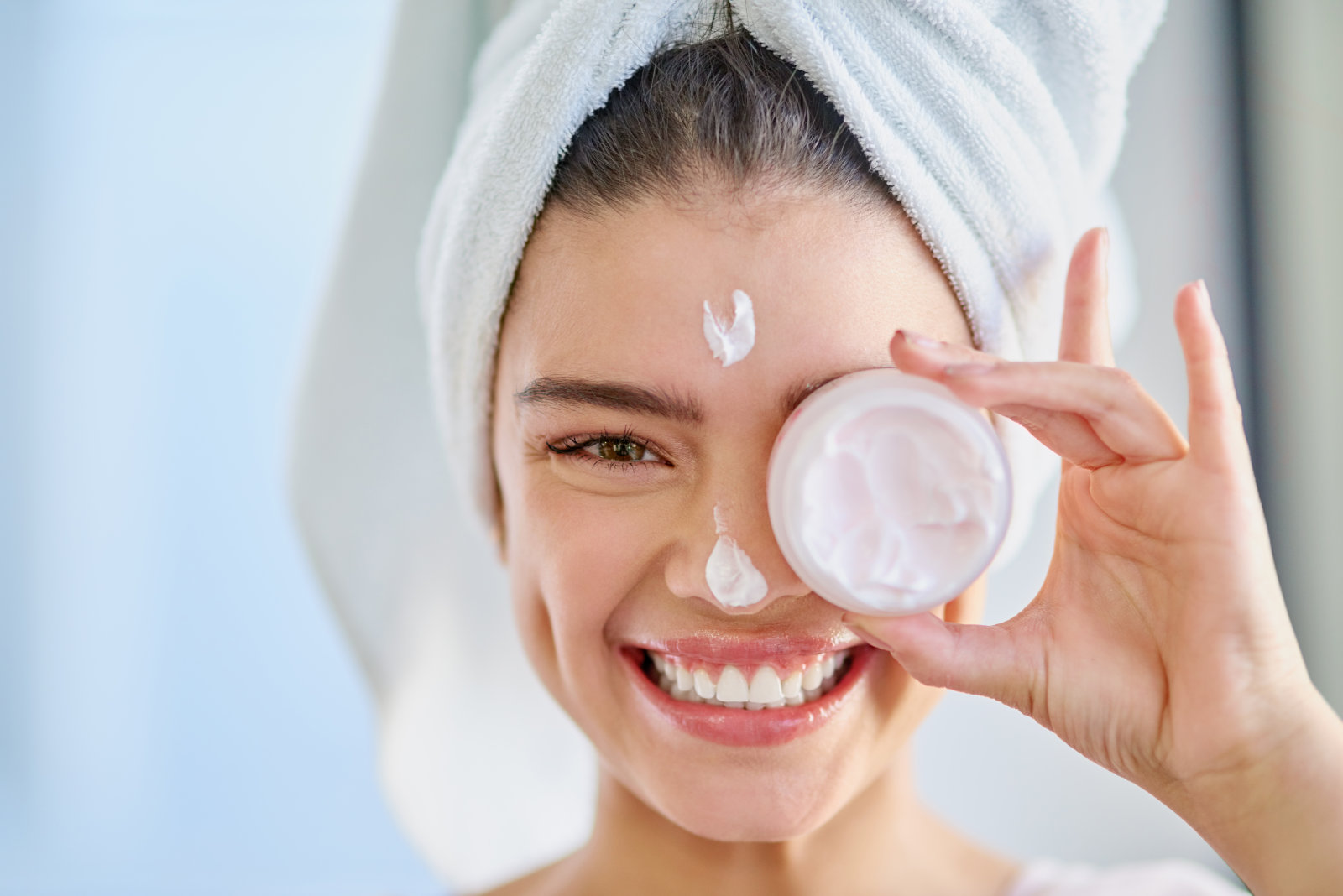Niacinamide has a plethora of benefits as a skin care ingredient including its ability to:
Minimize the appearance of enlarged pores and improve “orange peel” textured skin
Restore skin’s defenses against moisture loss and dehydration
Visibly even out skin tone and discolorations from sun damage
Among a handful of other amazing skin care ingredients such as retinol and vitamin C, niacinamide is a standout because of its versatility for almost any skin care concern and skin type.
As many of you know about us, but for those who don’t, the conclusions we make about any ingredient are always based on what the published research has shown to be true—and the research about niacinamide unanimously demonstrates how special it is. Ongoing research keeps confirming it’s one of the most exciting skin care ingredients around.
What is niacinamide?
Also known as vitamin B3 and nicotinamide, niacinamide is a water-soluble vitamin that works with the natural substances in your skin to help visibly minimize enlarged pores, tighten lax or stretched out pores, improve uneven skin tone, soften fine lines and wrinkles, diminish dullness, and strengthen a weakened surface.
Niacinamide also reduces the impact of environmental damage because of its ability to improve skin’s barrier (its first line of defense), plus it also plays a role in helping skin to repair signs of past damage. Left unchecked, this type of daily assault makes skin appear older, dull, and less radiant.
What does niacinamide do for your skin?
Niacinamide is most famous for its ability to reduce the appearance of enlarged pores. Research hasn’t come to a full understanding about how this B vitamin works its pore-reducing magic, but it seems that niacinamide has a normalizing ability on the pore lining, and that this influence plays a role in keeping oil and debris from getting backed up, which leads to clogs and rough, bumpy skin.
As the clog forms and worsens, the pores stretch to compensate, and what you’ll see is enlarged pores. Routine usage of niacinamide helps pores return to their natural size. Sun damage can cause pores to become stretched, too, leading to what some describe as “orange peel skin”. Higher concentrations of niacinamide can help visibly
tighten pores by shoring up skin’s supportive elements and often dramatically improving orange peel texture.
Other benefits of niacinamide are that it helps renew and restore the surface of skin against moisture loss and dehydration. When ceramides become depleted over time, skin is left vulnerable to all sorts of problems, from persistent patches of dry, flaky skin to increasingly becoming extra-sensitive.
What are the side effects of niacinamide?
In skin-soothing products and cosmetics, niacinamide is on every ingredient list. Its role as an antioxidant and as an anti-inflammatory has been shown to help reduce redness in the skin. However, side effects such as redness can sometimes be experienced when taking niacinamide.
In some other cases, especially in people with sensitive skin, niacinamide can actually cause skin irritation. While in some individuals, this is an extremely soothing ingredient, reducing dry skin. Niacinamide has been shown to cause flushing of the face, especially in sensitive areas such as the cheeks and nose, and around the eyes, including redness, itching, stinging or burning. allergic dermatitis. When these symptoms occur, the user should remove the product from the skin immediately by rinsing with plenty of clean water under continuously running water.
The cause of the side effects when taking niacinamide is due to the use in high concentration(niacin). At the same time, another reason to realize is that users use too much, also known as abuse. (However, observers cannot rule out the possibility that another ingredient may cause skin irritation.) The mechanism of irritation is that when the body absorbs high levels of niacin, the concentration of niacin increases. Serum histamine levels induce allergic reactions in people prone to skin allergies.
Niacinamide in cosmetics is a powerful ingredient for both moisturizing and brightening the skin. However, when used in high concentrations in skin care formulations, niacin can cause skin irritation. Therefore, choosing to use niacinamide wit low niacin content is suitable for skin care, avoiding side effects, because overuse can cause redness or inflammation of the skin.
Uniproma launched a new PromaCare NCM with very low niacin content. The content of niacin is less than 20ppm, it enables formulators to increase the product dosage to achieve more efficient whitening effect but causing no irritation to skin.
I f you are interested in ,please click here for details:PromaCare-NCM (Ultralow Nicotinic Acid)
Post time: Aug-12-2022
